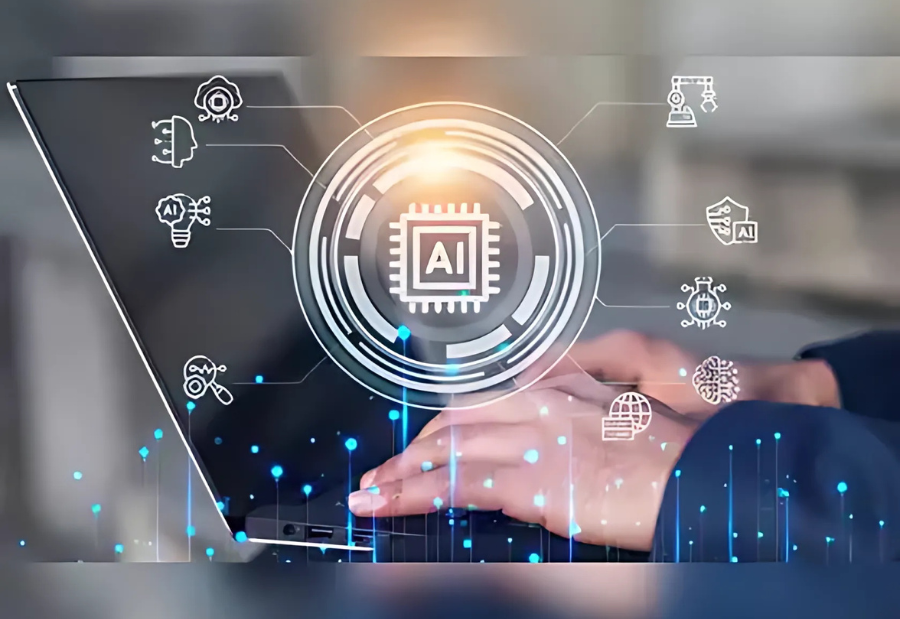Explore how the India Artificial Intelligence market is growing rapidly, with advancements in smart technology reshaping industries like healthcare and more.
According to a new report published by Market Research Future, The India Artificial Intelligence Market was valued at USD 10.15 Billion in 2025, and is estimated to reach USD 45.72 Billion by 2034, growing at a CAGR of 18.20% from 2025 to 2034.
The India Artificial Intelligence market has experienced tremendous growth in recent years, positioning itself as a global leader in artificial intelligence (AI) innovation and adoption. With advancements in smart technology solutions, AI is now reshaping industries such as healthcare, finance, education, and more. This transformative shift is driven by the increasing availability of big data, improvements in computational power, and a growing ecosystem of startups and tech companies pushing the boundaries of AI capabilities.
India is quickly emerging as a hub for AI development due to its unique combination of technological prowess, a large talent pool, and a booming startup ecosystem. The AI market in India is expected to witness significant expansion, providing vast opportunities for businesses to enhance operations, improve efficiency, and drive innovation.
Artificial intelligence has brought about notable changes in India’s healthcare sector, enhancing patient care and improving the efficiency of medical services. AI-powered systems are helping medical professionals in diagnosing diseases more accurately, recommending treatment plans, and predicting patient outcomes with advanced data analytics. These AI solutions in healthcare are enabling faster decision-making, reducing errors, and optimizing hospital management.
A prime example of AI’s role in healthcare is its application in medical imaging and diagnostics. AI algorithms analyze medical images, such as X-rays, CT scans, and MRIs, to detect signs of diseases like cancer or neurological disorders. This can lead to earlier detection, which is crucial for improving patient outcomes.
Moreover, AI is playing a pivotal role in personalized medicine. By analyzing a patient’s genetic data, AI can recommend personalized treatment options, ensuring better results. In a country like India, where there is a large population with diverse medical needs, AI’s role in healthcare transformation is undeniable.
The financial sector in India is also experiencing significant changes due to the integration of AI technologies. Financial institutions are leveraging AI to streamline operations, enhance customer experience, and improve decision-making processes. AI-powered tools enable banks and insurance companies to automate repetitive tasks, reduce human error, and make more accurate predictions regarding credit risk and investment strategies.
For instance, AI in finance has proven effective in fraud detection. By analyzing transaction patterns and detecting anomalies, AI systems can identify suspicious activity and flag potential fraud in real time. This significantly improves security, reduces financial losses, and builds customer trust.
Additionally, AI is helping financial institutions better understand consumer behavior and preferences through data analysis. This allows banks to offer personalized services, such as tailored financial products and recommendations, improving customer satisfaction and retention.
India’s startup ecosystem has seen a rapid rise in AI-focused companies. From deep tech startups working on cutting-edge AI applications to more established tech giants investing heavily in AI research and development, the landscape of innovation is evolving rapidly. Indian AI startups are at the forefront of creating solutions in diverse sectors like agriculture, retail, education, and logistics.
The AI startup ecosystem is benefiting from a combination of government support, venture capital funding, and an abundant talent pool of engineers and data scientists. The Indian government’s push to promote AI adoption through initiatives such as Digital India and Make in India has further catalyzed the growth of AI solutions in various sectors.
Moreover, AI’s ability to enhance machine learning algorithms has helped Indian startups build robust solutions that can predict trends, optimize processes, and deliver better outcomes for businesses. For example, in retail, AI is being used for demand forecasting, inventory management, and personalized marketing strategies. This allows retailers to optimize their supply chains and improve customer engagement, which is vital in a market as diverse and competitive as India.
The manufacturing sector in India is increasingly adopting AI-driven technologies to improve efficiency, reduce operational costs, and enhance production quality. Smart factories, powered by AI and Internet of Things (IoT) technologies, are transforming traditional manufacturing processes into highly automated and optimized operations.
AI-enabled systems are being used for predictive maintenance, where machines and equipment are monitored in real time to predict potential failures before they occur. This proactive approach helps reduce downtime, extend the lifespan of machinery, and minimize repair costs. Additionally, AI-powered robots are enhancing precision in assembly lines, improving production speed, and reducing human error.
The integration of AI into supply chain management is also optimizing inventory management, logistics, and resource allocation. By analyzing historical data and real-time market trends, AI algorithms can forecast demand and adjust production schedules accordingly. This results in more efficient operations and cost savings for manufacturers.
Education is another sector in India where AI is making significant strides. With the country’s vast and diverse student population, AI is helping educators provide personalized learning experiences tailored to individual needs. AI-powered learning platforms use machine learning algorithms to adapt content based on the student’s learning style and pace, ensuring more effective and engaging lessons.
Smart classrooms, equipped with AI-powered tools such as virtual assistants and interactive boards, are enhancing the teaching and learning experience. These tools help teachers manage classroom activities more efficiently and provide immediate feedback to students, enabling a more interactive and responsive learning environment.
AI is also playing a significant role in online education, particularly through platforms offering personalized courses, tutoring services, and AI-driven content recommendations. This shift is making education more accessible and customized, catering to the specific learning preferences of students across the country.
The Indian government has recognized the potential of AI to drive economic growth and has taken several steps to support the development of AI technologies. The National Strategy for Artificial Intelligence, launched by the Indian government, aims to position India as a global leader in AI by 2030. The strategy focuses on promoting AI research, fostering innovation, and creating a conducive ecosystem for AI startups.
In addition, government initiatives like Atal Innovation Mission and Digital India are encouraging the adoption of AI across industries, particularly in rural and underserved areas. The government’s commitment to promoting AI-driven solutions in sectors like healthcare, agriculture, and education is expected to boost the country’s AI ecosystem and support sustainable growth.
The future of the Artificial Intelligence market in India looks promising. As businesses and industries across the country continue to embrace AI, the technology will become increasingly integrated into every aspect of daily life. From smart cities to autonomous vehicles, AI will drive innovations that will shape India’s future.
Furthermore, the growing adoption of AI by both established enterprises and new-age startups will spur job creation, skill development, and economic growth. By embracing AI, India has the potential to solve some of its most pressing challenges, from healthcare delivery to urbanization and environmental sustainability.
India’s AI market is poised to play a crucial role in the global AI landscape, with the country emerging as a leader in AI research and technology innovation. As AI continues to evolve, it will open new avenues for businesses, government bodies, and individuals to leverage this transformative technology for a more efficient, connected, and prosperous future.
The India Artificial Intelligence market is on the brink of a significant transformation. With its growing technology ecosystem, vast talent pool, and increasing adoption across sectors like healthcare, finance, manufacturing, and education, AI is poised to reshape the country’s industries. Government support, coupled with innovation from startups and tech giants, is further accelerating this growth. As India continues to invest in AI, the country is well on its way to becoming a global leader in AI innovation, providing long-term benefits for businesses and consumers alike.
Also read: Viksit Workforce for a Viksit Bharat
Do Follow: The Mainstream formerly known as CIO News LinkedIn Account | The Mainstream formerly known as CIO News Facebook | The Mainstream formerly known as CIO News Youtube | The Mainstream formerly known as CIO News Twitter |The Mainstream formerly known as CIO News Whatsapp Channel | The Mainstream formerly known as CIO News Instagram
About us:
The Mainstream formerly known as CIO News is a premier platform dedicated to delivering latest news, updates, and insights from the tech industry. With its strong foundation of intellectual property and thought leadership, the platform is well-positioned to stay ahead of the curve and lead conversations about how technology shapes our world. From its early days as CIO News to its rebranding as The Mainstream on November 28, 2024, it has been expanding its global reach, targeting key markets in the Middle East & Africa, ASEAN, the USA, and the UK. The Mainstream is a vision to put technology at the center of every conversation, inspiring professionals and organizations to embrace the future of tech.




